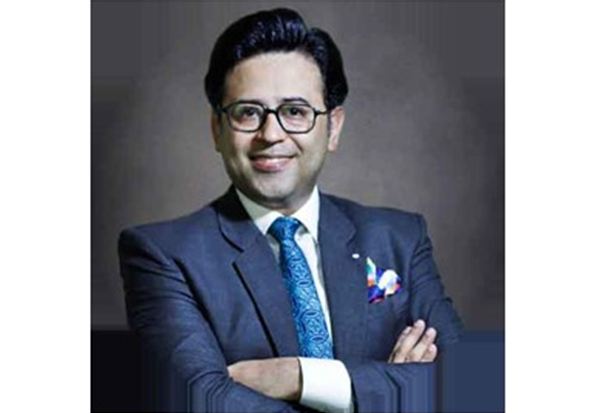Dr. M. Ali Hamza
Do you know that more that 75% of words in English Language are borrowed from other languages, for instance the word Banana is from West African Language Wolof, Lemon from Arabic, Ketchup from Chinese, Cigar from Spanish, Cartoon from Italian etc. Likewise Fachhochschule
is one of the borrowed words having a German origin. The word pronounces like “Fah-Ho-Shuelai”, often referred to as University of Applied Sciences. Fachhochschulen (the plural of Fachhochschule) were formally established in Germany in between 1950s and 1970s, played a vital role in German Higher Education System (HES) and were instrumental in shaping the country’s economic success and fostering innovation. After World War II, Germany needed a highly skilled workforce to aid in its post-war reconstruction and economic growth.
Traditional universities were seen as focusing too much on theory and basic research, leaving a gap in practical and job-oriented education. On the contrary Fachhochschulen promised to provide a more hands-on practical education in partnership with industry, preparing students for technical and engineering careers. The growth was not limited to technical fields; Fachhochschulen began offering a broader range of programs in areas like business, social sciences, and healthcare.
These institutions forged close relationships with companies, allowing students to gain valuable real-world experience through internships and cooperative programs. Later European countries like Austria, Finland, Switzerland, Sweden and many more updated their HES in alignment with the concept of Fachhochschule that served as catalysts for growth and innovation.
Fachhochschulen are often deeply rooted in their local communities. They contribute to regional development by providing skilled graduates who can address local economic and social challenges. This regional impact is particularly important in case of developing countries like Pakistan.
Pakistan is a country that, besides having ample production capabilities and natural resources, is highly import dependent. Why? There could be reasons lying in political will or others. In fact, the real problem is lack of human capital. Studies have established the fact that human capital based on practical/ applied education is a critical factor in driving economic growth and development in any country.
Production enhancement, technological advancement, global competitiveness, reduction of unemployment, workforce alignment, industry academia collaboration, entrepreneurial spirit, and social & income equality are the result of higher human capital which is the product of practical and applied education. A poetic expression by Dr Allama Iqbal; national poet of Pakistan, rightly elaborated the importance of human capital saying;
Jahan-e-Taza Ki Afkar-e-Taza Se Hai Namood
Ke Sang-o-Khisht Se Hote Nahin Jahan Paida
translated as “New worlds derive their pomp from thoughts quite fresh and new”
Though Higher Education Institutes (HEI’s) in Pakistan claim to offer applied education, but reality is very bleak. Public universities in particular and private universities in general are totally distant from industry issues. Policies of HEI’s do not allow teachers to be entrepreneurial. Majority of the teachers at HEI’s are having zero or negligible industry experience. Courses taught in undergrad (UG) programs are mostly wordy.
Teaching methodology is pedagogical instead of andragogical (the art or science of teaching adults); we do not consider university students adult and keep on spoon feeding. Follow up of internship programs is poor, thus bringing-in no benefit. Research produced in these HEI’s are shelved and offers no solution to local problem. Mug-up culture is still in appreciation.
It shows that policy makers at syndicate level are drowned into trivial matters or over occupied with mortar & brick and lack the ability to sense the future. Indeed, few institutes must be doing something good, but that something does not solve the problem. We need to change the lens from where HEI’s look at education in the larger context of life and survival in future.
One of a newly established government institute in KPK; Mang Haripur, carries this lens. A notable partnership between Pakistan, Austria and China in the realm of higher education, resulting in the establishment of the Pak-Austria Fachhochschule (PAF). The story of PAF began with a Memorandum of Understanding (MoU) signed between the governments of Pakistan and Austria in 2017. Austria; renowned for its excellence in technical and vocational education, was the ideal partner to assist Pakistan in strengthening its educational landscape. Within 3 years’ time, infrastructure was built and PAF inauguration took place in September 2020.
It is the first university in Asia, and possibly in the world in which eight leading engineering universities; three from Austria and five from China have come together as partners. PAF offers opportunities to Pakistani students to benefit from lectures and courses of these foreign universities, and some will even get degrees from those universities.
At the moment this Fachhochschule is offering 38 UG programs, of the fields in high global demand i.e., artificial intelligence, cyber security, data sciences, robotics etc. It is expected that combining Austrian & Chinese expertise with Pakistan’s educational needs, PAF would revolutionize technical and vocational education in Pakistan, preparing students to excel in a rapidly evolving world. PAF’s first UG batch is going to land in the market by mid of 2024, and this will be a litmus test of the quality of education promised and provided.
There are three hallmarks of any Fachhochschule; i) Practical and Applied Learning, ii) Strong Industry Connections, and ii) Focus on Employability & Entrepreneurship. This means that entire scheme of study, teaching methodology, research priorities, teachers’ training program, policy design has to be seen from the new lens.
















